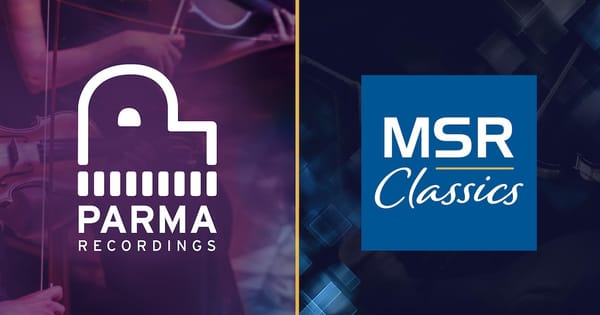Finding Funding: A Guide to Music Scholarships and Grants for Conservatory Education

Pursuing a career in music can be a rewarding and fulfilling journey, but it can also be expensive. Scholarships and grants can help alleviate the financial burden of music education and allow talented students to pursue their dreams.
In this article, we’ve discussed the key steps in finding and applying for music scholarships, including researching scholarships, writing effective scholarship essays, and preparing for scholarship auditions and performances. By following these steps and tips, you can increase your chances of receiving a scholarship for music education and pursuing your passion for music.
Remember, the scholarship application process can be competitive, but don’t let that discourage you. Believe in yourself, work hard, and showcase your talent and passion for music. With dedication and perseverance, you can achieve your goals and make your dreams a reality.
Introduction to scholarships for music education
Scholarships are financial awards that are given to students based on various criteria, such as academic performance, musical talent, and financial need. They are a great way to support your education and help you achieve your goals.
There are different types of scholarships available for music students, such as merit-based scholarships, need-based scholarships, and talent-based scholarships. Merit-based scholarships are awarded to students based on their academic performance and achievements, while need-based scholarships are awarded to students who demonstrate financial need. Talent-based scholarships are awarded to students based on their musical talent and potential.
To find scholarships for music education, you can use various resources such as scholarship search engines, music organizations, and conservatories. We’ll provide you with tips on how to research scholarships effectively and how to identify relevant scholarships that match your qualifications.
Scholarship eligibility requirements
Some common eligibility requirements for scholarships include academic performance, musical talent, and financial need. Many scholarships require a minimum GPA, so it’s important to maintain good grades. Other scholarships require that you demonstrate a high level of musical talent through auditions or performances. In addition, some scholarships are need-based and require that you demonstrate financial need.
To qualify for scholarships, you’ll need to provide evidence of your qualifications, such as transcripts, letters of recommendation, and recordings of your performances. It’s important to start preparing your scholarship applications early and to ensure that you meet all of the eligibility requirements before applying.
Researching scholarships
One of the best ways to research scholarships is to use scholarship search engines. These websites allow you to search for scholarships based on various criteria, such as your academic performance, musical talent, and field of study. Some popular scholarship search engines for music students include Fastweb, Scholarships.com, and Cappex.
Another way to find scholarships is to check with music organizations and conservatories. Many of these organizations offer scholarships to support music education and help students pursue their goals. For example, the National Association for Music Education (NAfME) offers scholarships to undergraduate and graduate students who are pursuing a career in music education.
When researching scholarships, it’s important to read the eligibility requirements carefully to determine if you qualify. You should also pay attention to the application deadline and ensure that you submit your application on time. Many scholarships require you to submit transcripts, letters of recommendation, and recordings of your performances, so it’s important to prepare these materials in advance.
Writing scholarship essays
When writing scholarship essays, it’s important to read the prompt carefully and understand what the scholarship committee is looking for. You should also pay attention to the word count and ensure that you answer the prompt thoroughly without exceeding the limit.
To make your scholarship essay stand out, you should showcase your talent and achievements. For example, you could write about a particular musical performance that you are proud of or discuss how music has impacted your life. It’s important to provide specific examples and details to support your claims.
In addition, you should demonstrate your passion for music and your commitment to pursuing a career in the field. You can do this by discussing your long-term goals and how the scholarship will help you achieve them.
When writing scholarship essays, it’s important to proofread your work carefully and ensure that there are no spelling or grammatical errors. You may also want to ask someone else to read your essay and provide feedback.
Preparing for scholarship auditions and performances
The first step in preparing for auditions and performances is to practice regularly. Set aside time each day to practice your instrument and work on your repertoire. You should also seek feedback from your teacher or a professional musician to help you improve your technique and musicality.
When preparing for auditions and performances, it’s important to choose repertoire that showcases your strengths and abilities. You should also select pieces that demonstrate your versatility and range.
In addition, you should dress appropriately for the audition or performance and arrive early to ensure that you have time to warm up and prepare. You should also bring any necessary equipment, such as sheet music or a tuning device.
During the audition or performance, try to remain calm and focused. Take deep breaths and visualize yourself performing at your best. Remember to communicate your musical ideas and emotions through your playing and connect with your audience.
After the audition or performance, reflect on your performance and identify areas for improvement. You should also follow up with the scholarship committee or organization to thank them for the opportunity and inquire about the results.
Summary and tips for success
Throughout this article, we’ve discussed the importance of researching scholarships, writing effective scholarship essays, and preparing for scholarship auditions and performances. By following these steps, you can increase your chances of receiving a scholarship for music education.
Here are some additional tips to help you succeed in the scholarship application process:
Start early: It’s important to begin researching scholarships and preparing your application materials well in advance of the deadline.
Be organized: Keep track of deadlines and application requirements to ensure that you submit your application on time and meet all eligibility criteria.
Showcase your strengths: When writing scholarship essays and preparing for auditions or performances, focus on showcasing your strengths and abilities.
Seek feedback: Don’t be afraid to seek feedback from your teacher or a professional musician to help you improve your technique and musicality.
Be authentic: When writing scholarship essays and performing, be true to yourself and communicate your musical ideas and emotions.
Follow up: After submitting your application or auditioning, follow up with the scholarship committee or organization to thank them for the opportunity and inquire about the results.
By following these tips and the steps outlined in this article, you can increase your chances of receiving a scholarship for music education and pursuing your passion for music. Good luck!





